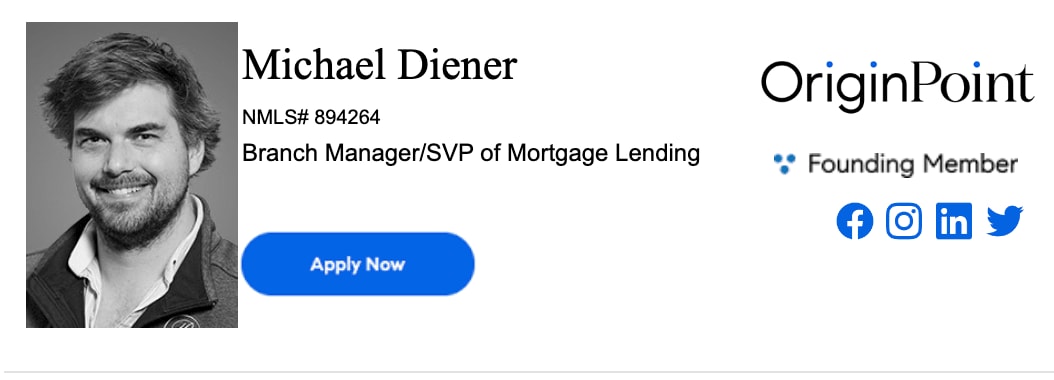When you're preparing to embark on the journey of homeownership, one critical aspect that can make or break your experience is your credit score. Understanding the intricate details of how this score is calculated is not only enlightening but also empowers you to take control of your financial destiny. In this blog post, Michael Diener from Origin Point helps us delve into the percentages of factors shaping your mortgage credit score while shedding light on the crucial differences between a mortgage credit score and a general consumer credit score.
1. Payment History (35%):
The backbone of your mortgage credit score is your payment history, constituting a significant 35%. This encompasses your track record of timely payments on various financial obligations, from credit cards to loans. It's important to note that mortgage lenders place particular emphasis on your history of mortgage payments, given the substantial nature of this financial commitment.
2. Credit Utilization (30%):
Accounting for 30% of your mortgage credit score, credit utilization measures the proportion of your available credit that you're currently using. While consumer credit scores also consider this factor, mortgage lenders scrutinize it closely, seeking borrowers who demonstrate prudent credit management. Lower credit card balances and a reduced credit utilization rate can significantly bolster this percentage.
3. Length of Credit History (15%):
The length of your credit history contributes 15% to your mortgage credit score, underscoring the importance of a well-established financial track record. Mortgage lenders value a longer credit history as it provides a more comprehensive understanding of your financial behavior. Unlike some consumer credit scores, mortgage credit scores often give more weight to the duration of your mortgage and housing-related debts.
4. New Credit (10%):
New credit and recent credit inquiries make up 10% of your mortgage credit score. While consumer credit scores also consider this factor, mortgage lenders pay extra attention to the timing of new credit applications. Opening multiple new credit accounts in close succession can be perceived as a potential risk, affecting your mortgage credit score.
5. Types of Credit in Use (10%):
The final 10% of your mortgage credit score evaluates the diversity of your credit portfolio, encompassing credit cards, installment loans, and mortgages. Mortgage lenders appreciate a balanced mix of credit types, showcasing your ability to manage various financial obligations responsibly.
Differences Between Mortgage Credit Score and Consumer Credit Score:
- Emphasis on Mortgage History:
While consumer credit scores consider your overall credit history, mortgage credit scores place a
particular emphasis on your history with mortgage payments and housing-related debts.
- Stricter Evaluation of New Credit:
Mortgage lenders scrutinize recent credit inquiries more closely than some general consumer credit
scoring models. The timing and frequency of new credit applications can have a more pronounced
impact on your mortgage credit score.
- Focus on Housing Debt:
Mortgage credit scores may give additional weight to your history with housing-related debts,
including mortgages and home equity loans, reflecting the unique nature of these financial
commitments.
In Summary:
Understanding the intricacies of your mortgage credit score empowers you to make informed decisions as you pursue homeownership. Recognizing the differences between a mortgage credit score and a general consumer credit score allows you to tailor your financial strategies to meet the specific criteria that mortgage lenders prioritize. Remember, building a strong credit profile requires time, commitment, and a strategic approach to financial management.
If you would like to set up a time with Michael to learn more, his contact details can be found below:
Phone: (970) 470-1976 or (970) 855-9007 | Fax: (610) 848-9567
Email: [email protected] | Website: https://www.originpoint.com/loan-officers/michael-diener-894264
Address: 1495 Canyon Blvd. Office #213 Boulder, CO 80302

